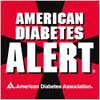 Recently, emergency contraceptives have been at the center of the debate as to whether employers must cover contraception under their health insurance plans. Under the Affordable Care Act, which covers preventive care, non-exempt employers must cover the morning-after pill (Plan B) and the week-after pill (ella) for their employees. Some companies don’t want to follow this requirement because they claim that these drugs cause abortions. However, it seems that these claims are based on outdated information, because recent research now definitively proves that Plan B doesn't cause abortions, and that ella most likely doesn’t impact established pregnancies.
Recently, emergency contraceptives have been at the center of the debate as to whether employers must cover contraception under their health insurance plans. Under the Affordable Care Act, which covers preventive care, non-exempt employers must cover the morning-after pill (Plan B) and the week-after pill (ella) for their employees. Some companies don’t want to follow this requirement because they claim that these drugs cause abortions. However, it seems that these claims are based on outdated information, because recent research now definitively proves that Plan B doesn't cause abortions, and that ella most likely doesn’t impact established pregnancies.
In the past, researchers knew that Plan B prevented pregnancy primarily by stopping ovulation, and therefore, fertilization. However, they were not certain whether it prevented fertilized eggs from implanting in the uterus. An abortifacient (abortion-causing drug) is something that interrupts an established pregnancy, which is typically considered to be when a fertilized egg implants in a woman’s uterus. By this definition, a drug that causes an unimplanted fertilized egg to leave a woman’s body is not considered an abortion, but it is still objectionable by some parties.
Recent studies, including one led by the International Federation of Gynecology and Obstetrics, have proven that these objections are unfounded by showing that Plan B only prevents ovulation and fertilization. It in no way stops a fertilized egg from implanting in a woman’s uterus, and does not cause abortions. This is also most likely the case with the week-after pill, known as ella, although the research is not as definitive. Ella is related to the abortion drug, RU-486 (Mifeprex), but unlike that drug which predominantly affects a woman’s endometrium, ella more strongly affects a woman’s ovaries, preventing ovulation. One study found that the rate of women who took ella after ovulation experienced pregnancy at the same rate as women who did not take it, indicating that the drug most likely does not prevent implantation.
While there is still stronger controversy when it comes to ella, individuals in the medical field opposed to abortion are starting to accept the fact that Plan B doesn't cause abortions, which is an important step in its increased acceptance as a contraceptive.
Source: Rovner, Julie. “Morning-After Pills Don’t Cause Abortion, Studies Say.” NPR. 4 February 2013.
For more information on the preventive services covered for women under the Affordable Care Act, click here.

 Medela, a company focused on women and infant health, has announced a call for nominations for its Breastfeeding Hall of Excellence, a program created to recognize individuals who help moms successfully nurse and reach their breastfeeding goals. Those eligible include lactation consultants, professionals and community advocates, including bloggers. Inductees will be awarded grants to support breastfeeding-related research, education and charities. Nominations will be accepted online March 26 – April 30, 2013. Full program guidelines and nomination forms can be found at
Medela, a company focused on women and infant health, has announced a call for nominations for its Breastfeeding Hall of Excellence, a program created to recognize individuals who help moms successfully nurse and reach their breastfeeding goals. Those eligible include lactation consultants, professionals and community advocates, including bloggers. Inductees will be awarded grants to support breastfeeding-related research, education and charities. Nominations will be accepted online March 26 – April 30, 2013. Full program guidelines and nomination forms can be found at  Teresa K. Woodruff, PhD
Teresa K. Woodruff, PhD  Diabetes affects the body in many ways. Celebrate Diabetes Alert Day (March 26) by learning how diabetes can effect the female body! Take a few minutes to look at this female anatomy
Diabetes affects the body in many ways. Celebrate Diabetes Alert Day (March 26) by learning how diabetes can effect the female body! Take a few minutes to look at this female anatomy  As the three-year anniversary of the Affordable Care Act approaches, the Kaiser Family Foundation has updated its
As the three-year anniversary of the Affordable Care Act approaches, the Kaiser Family Foundation has updated its  In May, 2013, the American College of Gastroenterology has published new guidelines for diagnosing and managing gastroesophageal reflux disease (GERD). Dr. Lauren B. Gerson from Stanford University School of Medicine, California, a member of the guidelines panel, highlighted six areas where the guidelines changed since the 2005 version:
In May, 2013, the American College of Gastroenterology has published new guidelines for diagnosing and managing gastroesophageal reflux disease (GERD). Dr. Lauren B. Gerson from Stanford University School of Medicine, California, a member of the guidelines panel, highlighted six areas where the guidelines changed since the 2005 version: Happy first day of spring! That’s right; even though we are still experiencing sub-zero temperatures in many parts of the country (Chicago weather today is brutal!), it is technically now spring. With spring, comes spring vacation and thoughts of warm weather and spending time at the beach. This month, women and men across the country will shed their parkas and start getting bathing suit ready. For many, this involves a certain amount of grooming, with respect to body hair. Before you get out your razor, clippers or wax, though, we wanted to give you a head’s up on an article, published in the upcoming issue of the journal
Happy first day of spring! That’s right; even though we are still experiencing sub-zero temperatures in many parts of the country (Chicago weather today is brutal!), it is technically now spring. With spring, comes spring vacation and thoughts of warm weather and spending time at the beach. This month, women and men across the country will shed their parkas and start getting bathing suit ready. For many, this involves a certain amount of grooming, with respect to body hair. Before you get out your razor, clippers or wax, though, we wanted to give you a head’s up on an article, published in the upcoming issue of the journal  March is National Women's History Month in the U.S. and we didn't want to close the month without paying tribute to the women who have made significant contributions to the nation's health. We've provide two links for you to view. The first link will bring you to the
March is National Women's History Month in the U.S. and we didn't want to close the month without paying tribute to the women who have made significant contributions to the nation's health. We've provide two links for you to view. The first link will bring you to the The U.S. Food and Drug Administration today approved Lymphoseek Injection, a radioactive diagnostic imaging agent that helps doctors locate lymph nodes in patients with breast cancer or melanoma who are undergoing surgery to remove tumor-draining lymph nodes.
The U.S. Food and Drug Administration today approved Lymphoseek Injection, a radioactive diagnostic imaging agent that helps doctors locate lymph nodes in patients with breast cancer or melanoma who are undergoing surgery to remove tumor-draining lymph nodes.